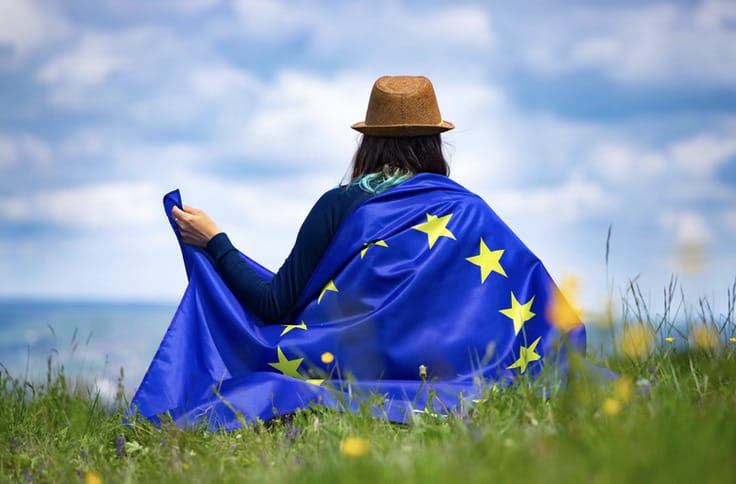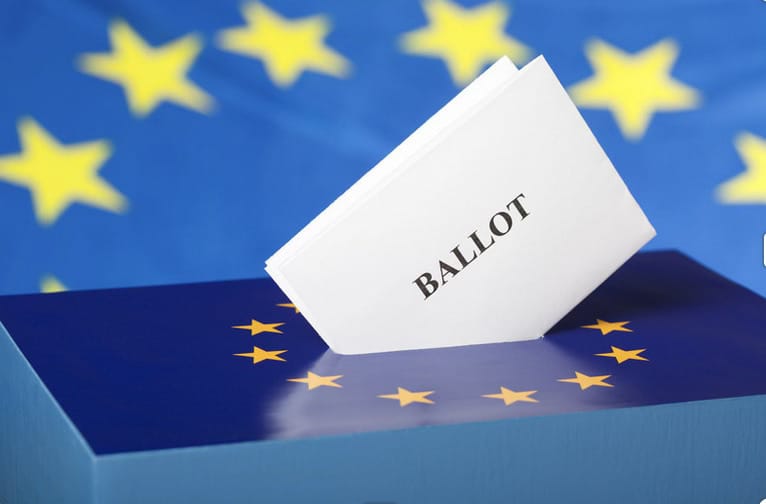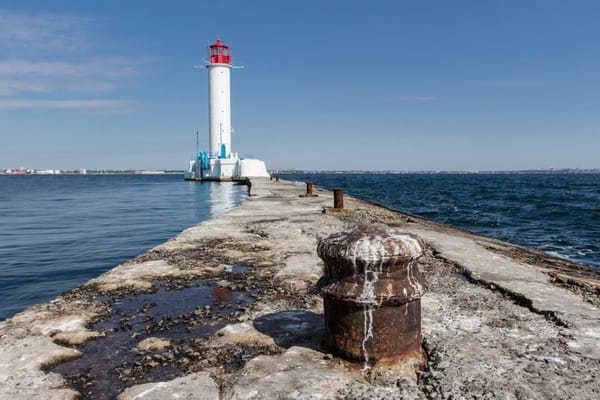Eurosceptics Gain Momentum in the EU Parliament
Making sense of the recent EU elections

We are nearing the halfway point in this historic year of elections. The European Parliament elections wrapped up last week, and American readers can be forgiven for either not knowing the results or for thinking that the so-called “Far Right” won the election mathematically, given how little coverage there was.
To be fair, the growth of the Eurosceptic and nationalist parties is an, if not the, central issue. And there was some solid coverage. The Financial Times and the reliable Project Syndicate have provided thoughtful analysis. I would have liked to see more coverage of results from the New Europe nations (credit to On Point for at least bringing us some coverage of Poland’s results). And I can’t help but wonder why we can’t just call a 4-5% increase of seats as significant (and troubling) growth, or “big gains,” as this NPR segment described the results. Instead we have to use the word “surge” when the estimated share of seats for so-called far right parties has moved from 20% of the parliament to 24%?
Notes from New Europe is a reader-supported publication. To receive new posts and support my work, consider becoming a free or paid subscriber.
Back in April we were warned that turnout would be low, and it was. It is hard to tell people far away to pay close attention when those most directly affected did not step up (or out) to the polls. Yet, these are highly consequential elections. And while I hope we in the media work a bit harder to resist the temptation to over-simplify our coverage by leaning into headlines and debates that provoke worry without learning, we need to look closely at how effective cynical narratives from parties like AfD and AUR and VOX have been among an active and loud minority.

In an effort to make sense of all of this, I connected with Ryan McLaren, a security analyst as CSD. Ryan is of the generation in Europe that grew up with both a national identity and an EU identity. He studied in multinational classrooms, and he tells me he “greatly benefitted from the rights afforded to EU citizens to study in other member states.” He is from Ireland, was educated in Scotland and The Netherlands, and is now based in Bulgaria. His perspective and his scholarship is always helpful for me and his colleagues in Sofia.
GG: Ryan, there was a lot of anxiety/anticipation about anti-democratic parties, and eurosceptic parties doing well. And indeed, we saw some of these parties make gains—from the entrenched to the new to the downright odd (the “Chipmunk party” in Spain). How would you describe the results for these parties overall?
McLaren: I believe this is an exercise demonstrating both the agency of an angered electorate and their willingness to vote for alternatives previously deemed beyond the pale. There may also be a slightly more optimistic, or at least less sombre interpretation. The votes for these fringe, or even downright obscure parties may simply be protest votes. An electorate may be more willing to demonstrate their rage in an EU election than national elections, where they would perhaps not dare vote for ‘Chipmunk Party’-esque representatives. Count Binface has long built a respectable following on such protest votes in UK elections.
GG: These groups are far from unified. You have been analyzing the ideological differences. What are the key divisions? Nonetheless, is there a path for them to unite and have an impact in EU policy beyond being disruptive?
McLaren: Yes, there is indeed sizeable differences between these groups. Russia represents perhaps the most significant sticking point. Meloni, former coalition partner of Putin-pal Silvio Berlusconi, previous promoter of Russia’s Sputnik vaccine and one-time opponent of sanctioning Russia over Crimea, now supports von der Leyen’s hard-line stance on Russia. This is in stark contrast the position of Le Pen and her Kremlin-sympathetic allies in the ID group. This thus extends to the two grouping’s varying positions on arming Ukraine and relations with NATO. Though both are wary of immigration, Le Pen is far more ‘right’ on this issue than Meloni’s ECR. The two groupings, reflected by their leaders, also differ on their approach to the European system: Meloni wishes to work in the system – an approach from which she has gained great success – whilst Le Pen rages against the machine from the outside. Incidentally, it is also their view of the EU from which their more significant common denominator stems: what the EU should be. Both the leader of ID and of ECR agree that the EU should be a loosely connected federation of European nations as opposed to an over-bearing, closely integrated union whose will is imposed on sovereign states, from Brussels.
Regarding a possible route to the formation of a ‘mega-group of nationalists,’ Meloni has still not ruled it out. If ID and ECR came to an agreement, that mega-group would be the second largest in the parliament. I believe the most likely route to would involve a Trump victory in November, and the disastrous result this would mean for Ukraine. Meloni, the skilled politician with her finger very much on the pulse, would no doubt notice the changing tide – and may then jump from the von der Leyen ship. The same result could unfold if Macron’s gambit backfires and Le Pen’s golden boy wins big in France in the coming weeks. There are, of course, myriad factors and events that could drive to the two women closer together. The Israel-Palestine is an ever-contentious issue that has already radically divided the Union. Questions of migration and EU ascension are spiky ones on which the two might find common ground, and similarly, the green transition never fails to spawn some controversy in Europe.

GG: There is a lot of hand-wringing about the traditional powers—the European Peoples Party (EPP) and Party of European Socialists (PES)--losing ground. While I hesitate to use the dated (and often misleading) labels like right and left, where has the so-called center lost some of its influence?
McLaren: Parties on both extremes of the political spectrum have indeed gained ground, mostly at the cost of the centre-left. This was not necessarily a simple set of gains for the hard/far-right, but a victory of sorts for the extremes. As mentioned above, much of the electorate feels left behind in today’s Europe, and the cost of living crisis that grips much of the West has highlighted some of the shortcomings of the globalised, liberal democratic understanding of the world. Populist politicians have successfully laid the blame at the feet of “out-of-touch elites” in the capitals of Europe “who don’t understand ‘real people.’” This is Populism 101. The traditional centrist parties have provided the conditions for such accusations to stick.
I was recently struck by Jennifer Rankin’s interpretation of the causes for the right’s strong performance in 2019: “immigration, European integration and economic issues (and) the narrative that an “evil elite” was in charge”. Were it not for the Guardian’s yellow banner reminding me that this article were now five years old, I would have believed it was in response to the elections a fortnight ago. Faced with unprecedented challenges in the last number of years (climate crisis, economic downturn, the glaring exposure of failed migration policies), the EU’s politicians were complacent. Many fell into the trap of increased political polarisation (not helped by the events in Gaza), whilst others hid their heads in the sand hoping for the far-right problem to go away.
Others were blatantly incompetent: in my native country, Ireland, where a severe housing crisis continues to prompt our young and educated to flee abroad, the government over-promised on accommodating refugees without adequately communicating the importance to the public. This seemed to alienate those already flirting with right-wing politics. The Dutch attempt to reduce nitrogen emissions had a similar effect, driving farmers to the far-right. The age-old warning that economic downturn breeds extremist politics has not been heeded. Whilst populists have proved just how potent their message is proving with disenfranchised voters feeling left behind, those accused of being out-of-touch elites have not done much to counter the accusations levied at them, assuming that everyone would remember the dangers from 1945 and 1989.
Thank you for reading Notes from New Europe. This post is public so feel free to share it.
GG: What dangers are you most concerned with? And how might the EU work to preserve democratic values despite the makeup of the parliament after this election?
McLaren: Without a shadow of a doubt, Putin represents the most pressing danger to Europe. The election of far-right politicians with Russian sympathies to that sacred chamber will now, in some way, shape or form, reduce Europe’s ability to counter Putin - whose armies now lie just 1,500 miles from Brussels. It may only grant the Le Pen’s of the world a greater platform from which to preach, normalising her hateful politics to more and more voters. It may also embolden the Orbáns and Ficos of Europe in their democratic back-slide towards authoritarian rule.
Those on the right in the EU will be less concerned with their state capture activites and the spread of their ‘illiberal tentacles’ to neighbouring states – potentially gaining more allies for Putin and Xi’s Authoritarian Axis. Alternatively, the increased presence may cripple the EU’s ability to develop a unified stance on Russia and China and prevent progress on strategic autonomy – which may grow in importance come November.
To prevent the cycle from repeating in five years’ time, the EU and its politicians must be proactive in challenging Putin’s right-wing mouthpieces in Europe. It should now be clear that hiding one’s head in the sand does not make the problem go away. Though the cordon sanitaire that worked thus far for Mr. Wilders in the Netherlands has prevented him from being Prime Minister this time, he remains confident the cordon will not hold forever.
Our politicians must actively seek to intellectually dominate the far-right populists, highlighting their shortcomings (and those of their Russian idol) and continue to present the case for liberal democracy and the benefits of the EU. David Cameron’s’ hubris surrounding the Brexit campaign gloriously backfired for his failure to do so. One may take notes. Whilst doing so, the ‘evil elites’ must do more to counter this perception. Fairly or unfairly, this notion has gripped huge swaths of the public, playing into the hands of the populist men and women ‘of the people.’ The top-down implementation of the nitrogen proposals in the Netherlands may serve as an example of how not to approach domestic policy.
More effort needs to be devoted to strategic communications with the public, engaging them as equals and convincing the citizenry of plans, not telling the public ‘we know what’s best for you.’ As we were recently reminded, the EU is indeed mortal. Failure to confront the hatred with the benefits of liberal democracy and the European Union may prove Mr. Macron right.
Thanks to Ryan for sharing his analysis and perspective. If you want to look more closely at the election results, the EU itself is of course a good source for data. And as always, I’d love to hear from you.
I am back in the US for the next two months, though I will continue to provide some views from New Europe. Stay tuned as I try to understand Bulgaria and the region through the lens of music and the shared global language of football.
Notes from New Europe is a reader-supported publication. To receive new posts and support my work, consider becoming a free or paid subscriber.



